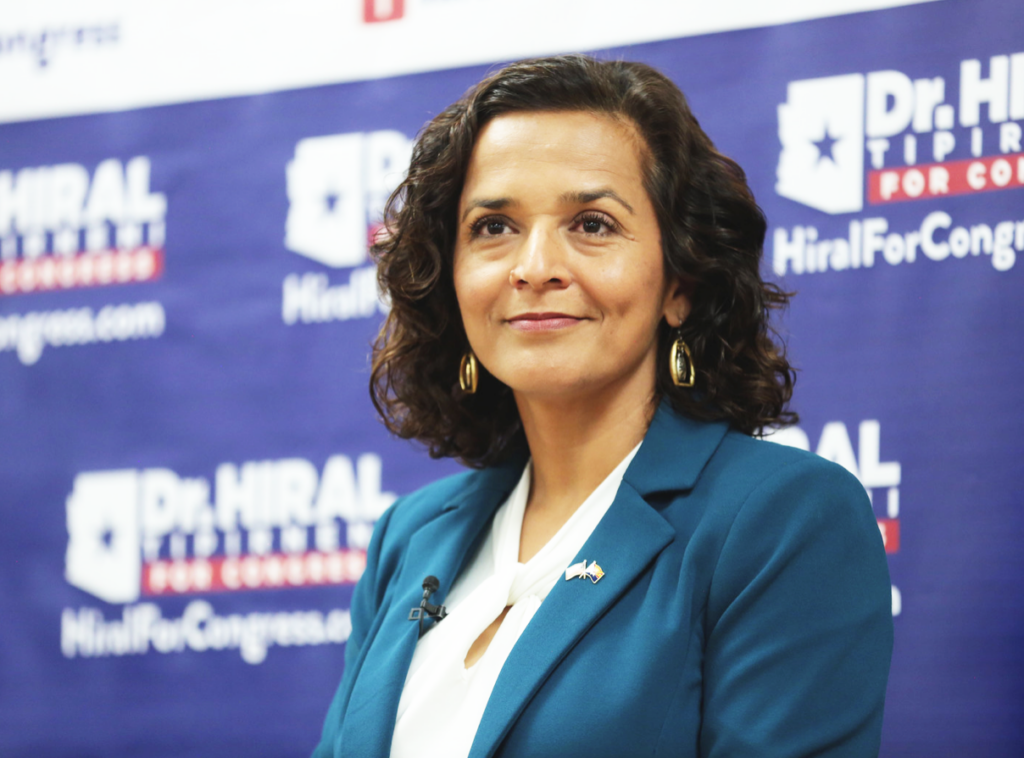Jevin Hodge (left), 29, who runs the oldest Head Start Program in Arizona, ran against Rep.Schweikert (right) last cycle in what would be the closest congressional contest in Arizona of 2022. He lost by just 3,195 votes.|| Campaign photos
By Tara Kavaler || The Arizona Republic
Democrats are lining up in Arizona’s 1st Congressional District to take on incumbent Republican Rep. David Schweikert.
However, next year’s Democratic primary will not include two names known to area voters: Jevin Hodge and Hiral Tipirneni, two of Schweikert’s former general election opponents.
Hodge, 29, who runs the oldest Head Start Program in Arizona, ran against Schweikert last cycle in what would be the closest congressional contest in Arizona of 2022. He lost by just 3,195 votes.
In doing so, Hodge lost two consecutive close races. In 2020, Hodge lost his race for the Maricopa County Board of Supervisors by only 403 votes.
Four years of campaigning has taken its toll, and Hodge tweeted March 31 that he is not running for office again this election cycle.
“I ultimately came to this decision of saying that I could be of service or even more impactful as a business leader and community leader because of the weight that campaigning has on your life,” Hodge told The Arizona Republic in an interview. “As someone doesn’t come from wealth, it adds an immense amount of financial strain on your life and limits the opportunity for professional and financial advancements.”
“There’s a significant possibility that I’ll run for office again. It’s just not this cycle,” Jevin Hodge says.
Still, the Arizona Democratic Party’s rising star is not going anywhere.
“I’m not disappearing; I’m not stepping away. I am going to stay involved; I’m going to stay engaged,” Hodge said. “And there’s a significant possibility that I’ll run for office again. It’s just not this cycle.”

Tipirneni, 55, announced this month that she was not going to run. A former emergency room doctor, she ran against Schweikert in 2020. She lost in a relatively close race, capturing 47.7% of the vote, while Schweikert received 52.2%.
“I gave it 110% each time I ran. … At this point, I’ve gone back to my medical work and I’ve been working on some of the public policy issues surrounding health care and the social determinants of health. I know I can make a difference in the public capacity,” she told The Republic in an interview. “And if I can’t give a candidacy everything I have, then I have no business looking to anybody for their votes or their support.”







